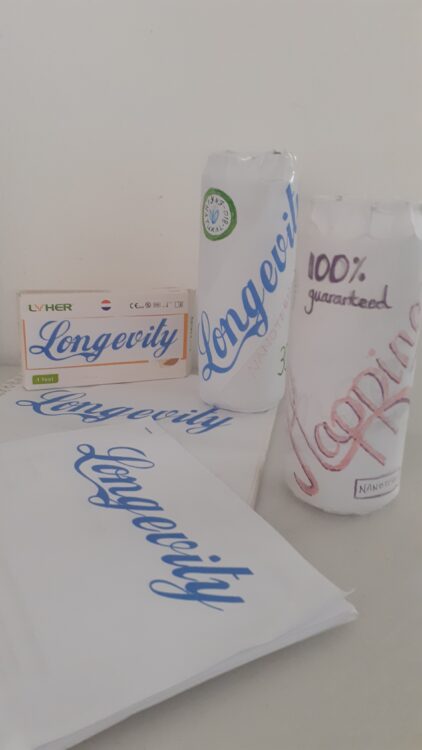
Through my work at the Bassetti Foundation (a Technology Bloggers partner) I have been fortunate enough to lecture at universities and schools about responsibility in innovation. At the Foundation we have a concept that we call Poiesis intensive innovation, and I try to put this idea into practice during my lessons. Poiesis could be thought of as the art or craft of being able to do something. It resides within an individual as well as an institution. It might be the ability to use a machine or piece of technology in a way that it was not necessarily designed for, or to use skills that could be seen as from a different field.
With Angelo Hankins as collaborator, I use my theatre training and secondary school teaching experience in a lecture called Longevity: Now Available in Cans! This lecture aims at getting students to think about the role of technology design in future-making, based on the idea that technological development plays a role in steering society and as a result the way we behave and experience life. We only have to think about the development of the internet, or its commercial development from an initial military role, to see how our lives have been changed by a few individuals who built the system we now use every day.
And I would say that they crafted these developments, or that they are crafting them as they develop.
During the lecture we present a (near future) drink called Longevity. The drink contains nanobots, a form of nanotechnology. The nanobots are really switches that can be turned on and off. These switches stimulate your body to produce different levels of adrenaline. The user downloads an app which they use to control their own adrenaline levels, offering the possibility to lower levels at night so that sleeping patterns can be made regular, and once asleep, levels can be lowered to such an extent that they go into a form of hibernation. This allows the body to rest more, offering the chance to live 30% longer!
The presentation brings in lots of topics for discussion related to how the introduction of such a product might affect society. Will it be fairly distributed? How will it change demographics? Which questions does it raise about marketing and claims about truth, values and life itself?
After the product launch, we have a sketch in which a great grandchild comes home to his/her grandparent to discover that they no longer want to take the drink. They say it is unnatural (currently 107 years old) and that all of their friends (including partner) have died. This means that they can’t look after the great great grandchildren any more, and this causes a conflict in the house. Are they just being selfish? What are societal and familial expectations.
The students then play with the props (pictured above) and improvise conversations, before reporting to the class. The idea is that the design process can be seen and decision-making moments can be talked about.
This game is not limited to schools and universities though. It makes a great party game. We have published an article which is free to download here that explains everything. It has a description of how to make the props, a fake video of the company announcement of its discovery, as well as notes so that anyone can use it anywhere. Everything is open access and free to use.
And I didn’t even mention the Happiness: Now available in cans! version. Dopamine on demand. With adrenaline!
So why not take a look and play it with your friends?
One thought on “Longevity: Now Available in Cans!”